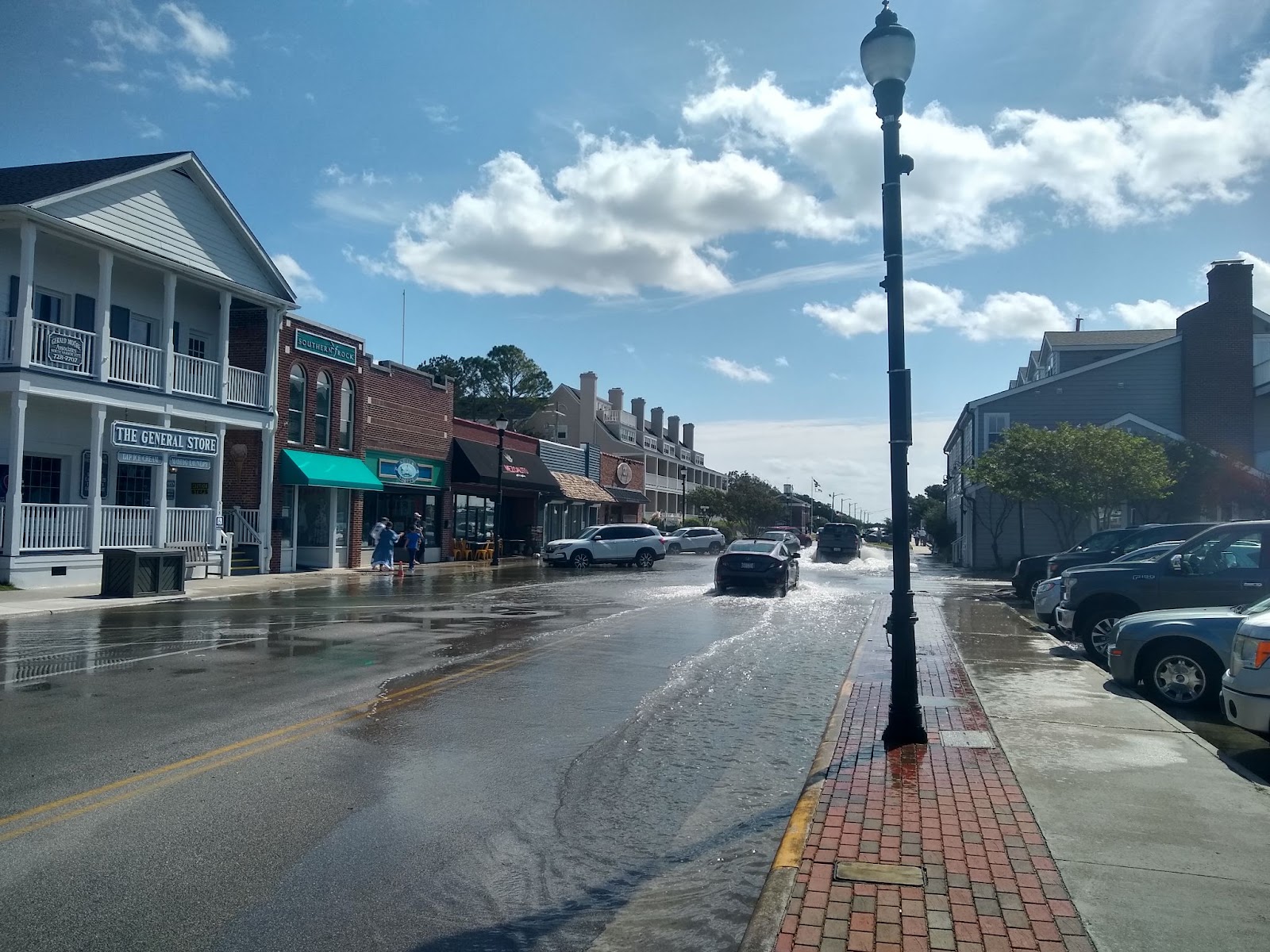NOAA Funds Research to Examine Climate Adaptations for NC, SC Septic Systems
FOR IMMEDIATE RELEASE
Contact: Katie Mosher, 919-515-9069, kmosher@ncsu.edu
Rural communities already have seen the havoc that hurricane flooding can bring when septic systems overflow into nearby land and waters. A new research project funded by the National Oceanic and Atmospheric Administration will look at potential longer-term impacts of climate change for onsite wastewater treatment systems in the Carolinas.
“Ultimately we want to help coastal communities prioritize climate adaptation investments,” explains Jane Harrison, North Carolina Sea Grant’s coastal economist, who will lead the study.
The mulitcampus and interdisciplinary team also includes Charles Humphrey and Michael O’Driscoll of East Carolina University; Eric Edwards and Jared Bowden of North Carolina State University; and Katie Hill of the University of Georgia.
The funding is from the NOAA Climate Program Office Sectoral Applications Research Program (SARP) and the Coastal and Ocean Climate Applications (COCA) program.
“The cost of extreme weather and climate events is escalating, driving Americans to increasingly turn to NOAA for actionable climate information,” said Wayne Higgins, director of NOAA’s Climate Program Office. “With these new awards, we’re advancing the foundational climate and decision science needed to better understand and predict our changing climate and its impacts. These activities will help put critical authoritative information into the hands of people who need it to better plan and respond.”
Wastewater infrastructure is designed to provide safe and efficient treatment of sewage to protect human health and the environment. Earlier research has shown that climate change threatens the effectiveness of these systems in coastal communities.
“High-tide flooding and extreme precipitation events, as well as sea level rise can bring immediate and long-term losses of system functionality,” says Charles Humphrey.
“If septic systems and other onsite technologies fail to process contaminants, results may include human illness, ecosystem damage, and ultimately the un-livability of communities that depend on them,” Humphrey explains.
The team will evaluate multiple onsite wastewater technologies under various climate conditions. The sites will be in the coastal Carolinas in partnership with the Town of Nags Head, N.C. and City of Folly Beach, S.C. already experiencing infrastructure threats due to climate change.
“Septic system vulnerability is one of the largest adaptation challenges we will face,” says Spencer Wetmore, city administrator for Folly Beach. “The City currently does not have a good understanding of when and how the current systems may become compromised, what steps we can take to mitigate the risks, and what options exist if systems are no longer functioning.”
The study will focus on three pollutants: fecal bacteria, phosphorus and nitrogen.
“The effort builds on existing understanding of decentralized wastewater infrastructure functionality by wastewater facility operators, private septic experts, and coastal community decision makers,” Harrison explains.
Interviews of such experts will enhance the economic analysis of potential adaptation measures. Also, legal analysis will identify alternative wastewater technology regulatory barriers and solutions.
“The team will develop protocols that coastal decision makers and adaptation professionals can use to plan and prepare for climate change with regards to decentralized wastewater infrastructure,” Harrison notes, citing the potential for adapting or relocating existing systems.
About North Carolina Sea Grant: NCSeaGrant.org
##
- Categories:


